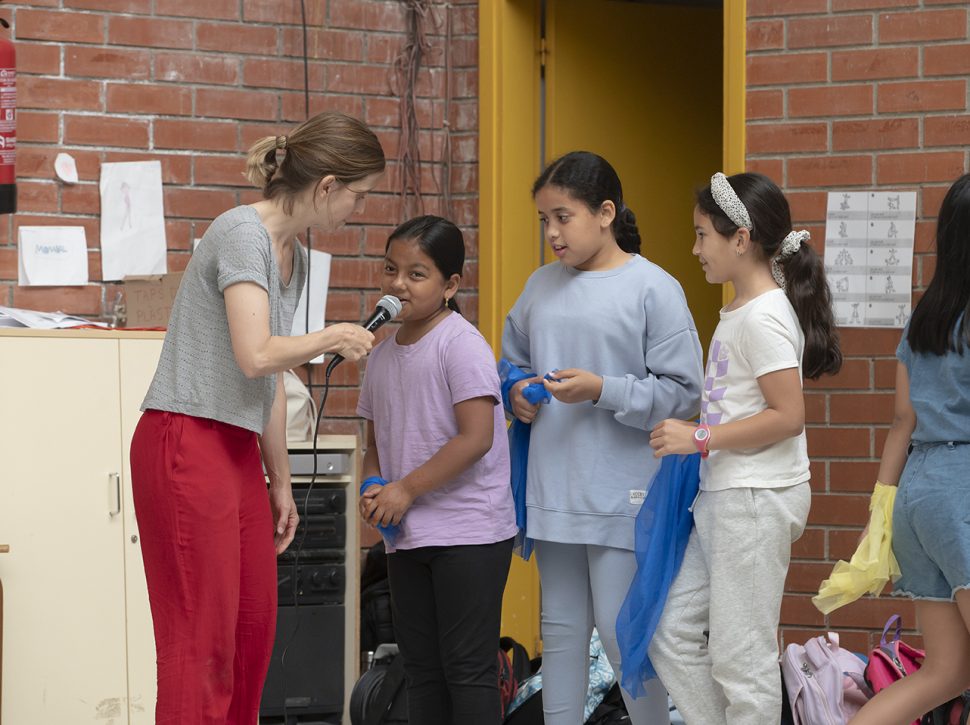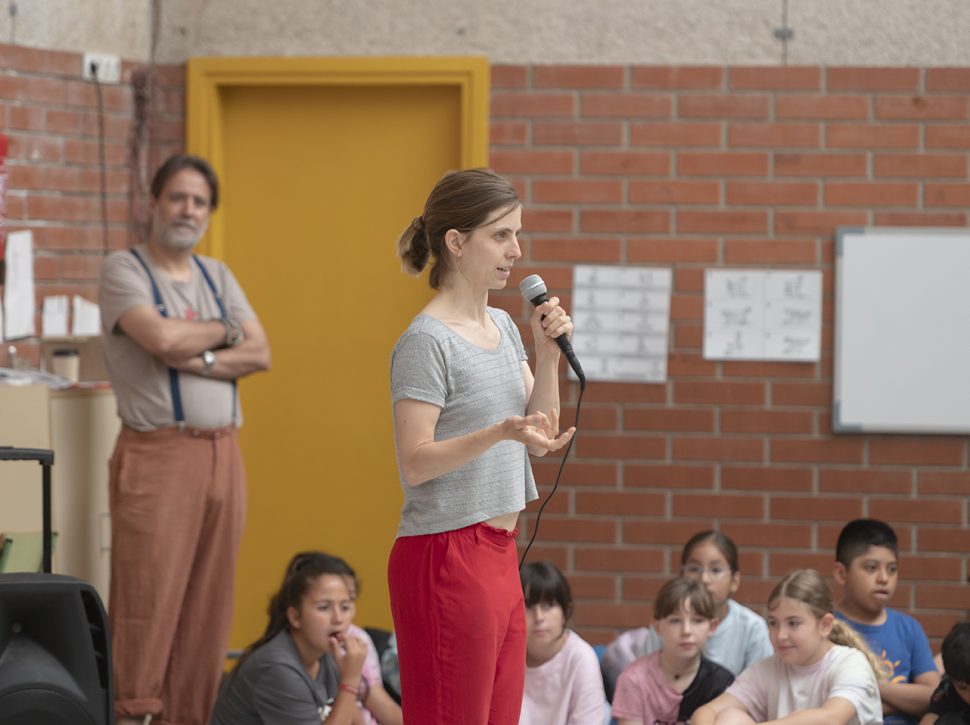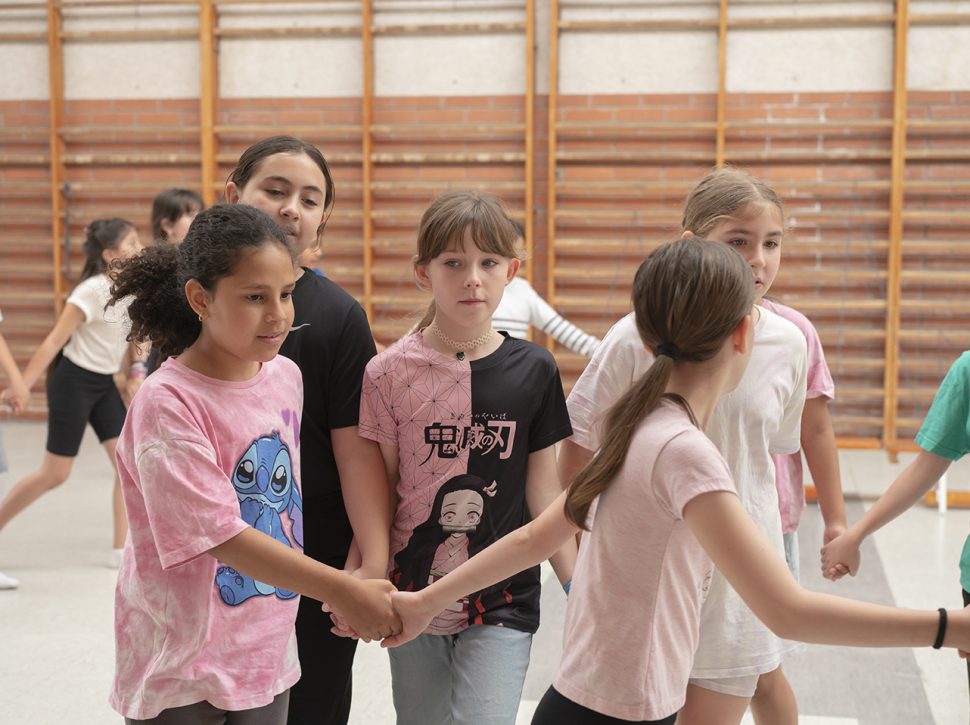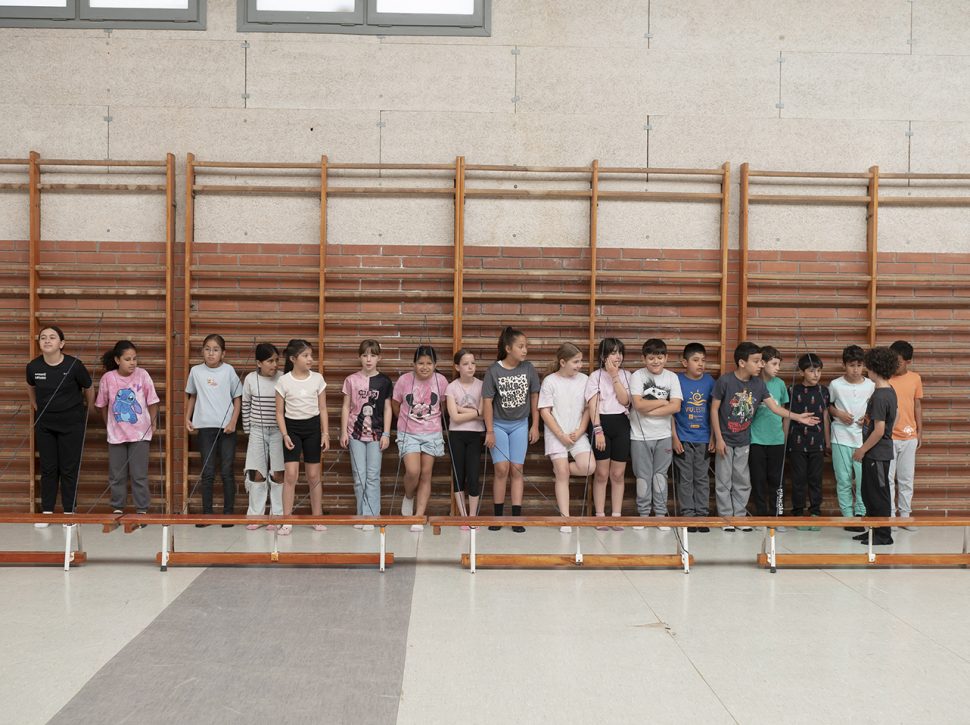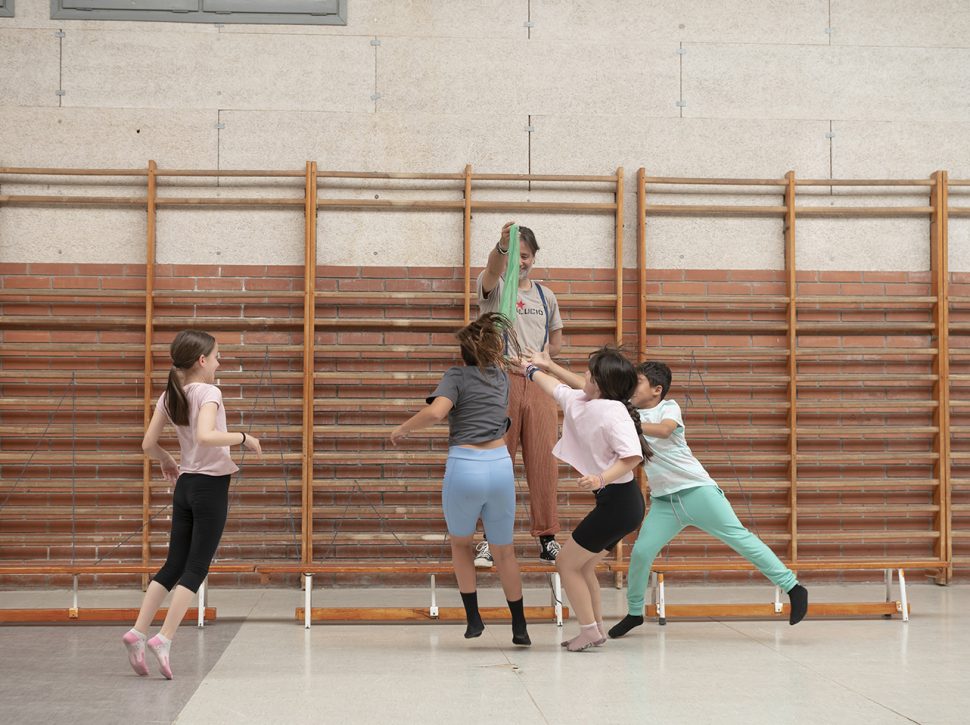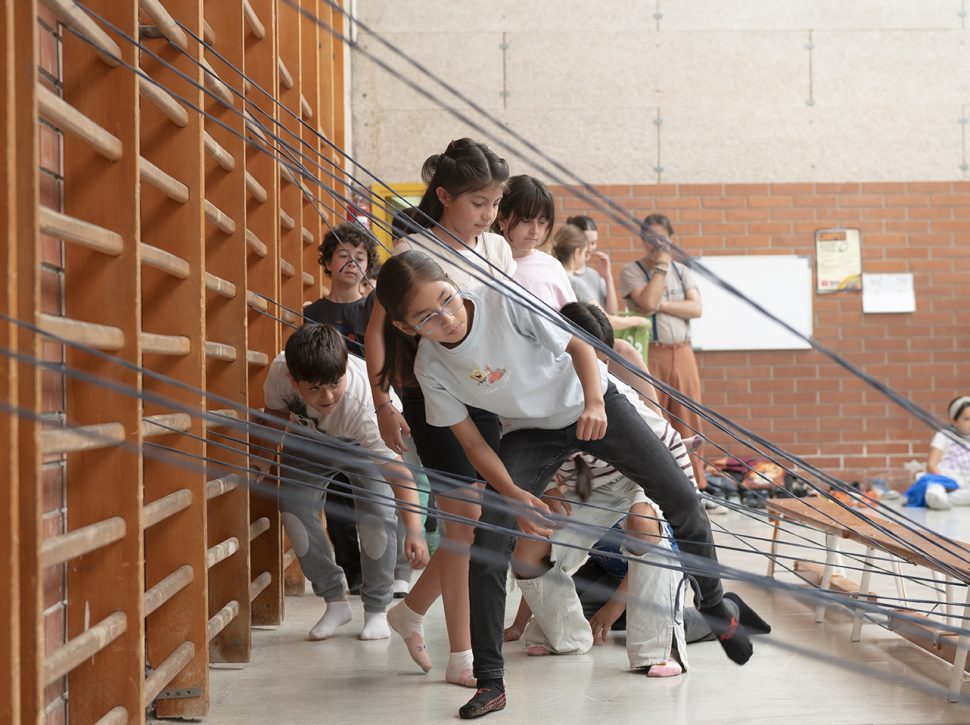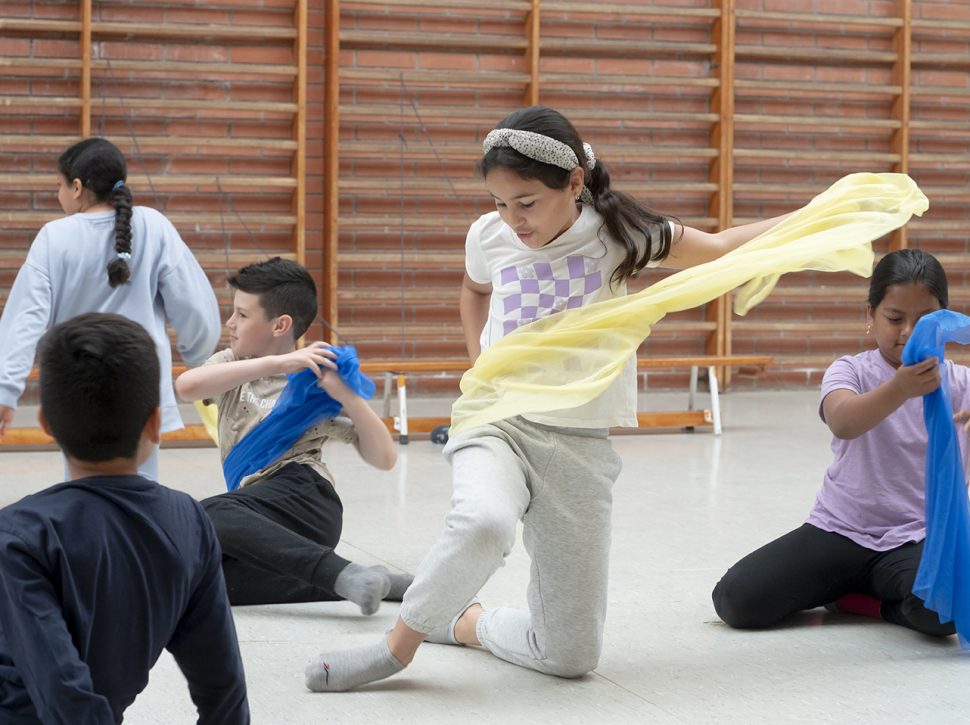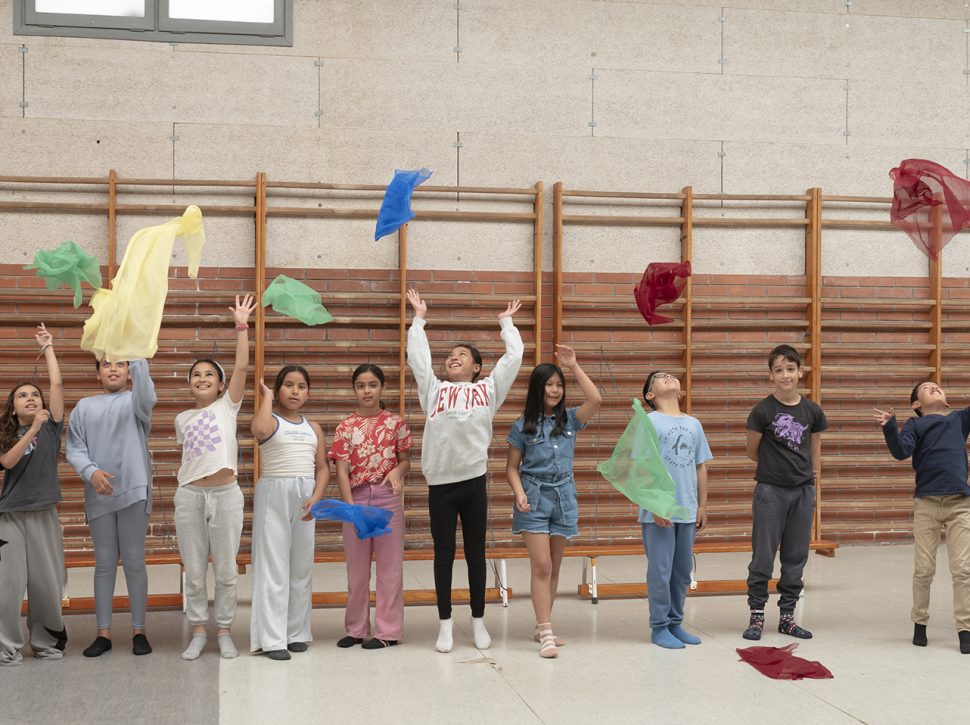With “Partitura de jocs,” Mireia de Querol creatively explores memory and history, proposing a game about temporality based on personal and collective imagination inspired by a common space. In this process, students are invited to investigate, on one hand, the history of traditional games from their places of origin, their variations, and possible adaptations… During this initial phase, the children have conducted a survey among their family members, both those living here and those residing in other countries, to gather more information and use it in the preparation and creation process of this game-piece.
Mireia de Querol is a dancer, choreographer, and teacher in the field of contemporary dance, based in Barcelona. She graduated with a BA in Modern Theatre Dance from Theatreschool, Amsterdam School of the Arts (AHK), in the Netherlands, from 2003-2007. Simultaneously, she also earned a degree in Humanities from the Autonomous University of Barcelona (2001-2008). As a solo choreographer, she has created several pieces, among which the solo “I tots els altres” (2011) won 3rd Prize at the Baltic Movement Contest in Gdansk, Poland (June 2011). Currently, and since 2012, she has been working with artists Anna Rubirola and Cecilia Colacrai, forming the collective Big Bouncers, with which they have created several pieces, including “Big Bounce,” which received the Sebastià Gasch Award, Applause for Emerging Creation, FAD 2015. She is part of the Grup La Bolsa, which collaborates with Thomas Hauert in creating the piece “La mesura del desordre” (Festival Grec 2015), and the piece “Retrats Errants” (Mercat de les Flors 2018), with the accompaniment of the company Mal Pelo. She has also collaborated with other independent creators such as Ona Fusté, Montserrat Iranzo, Ariadna Estalella, Anna Mustonen, and Mara Smaldone.
Project led by Mireia de Querol and Duran, with the accompaniment of Judit Gelabert Castillo, a student of Dance Pedagogy at the Institut del Teatre de Barcelona. Group tutors: Laura Gris Gil and Juan Diego Arenas Sandez. Special thanks to the families for their contribution to the memory of traditional games.
The educational program of Graner is part of the Caixa d’Eines program, driven by the Pla de Barris of Barcelona, which consists of introducing artistic practices into the school curriculum to reduce inequalities between the city’s neighborhoods.





